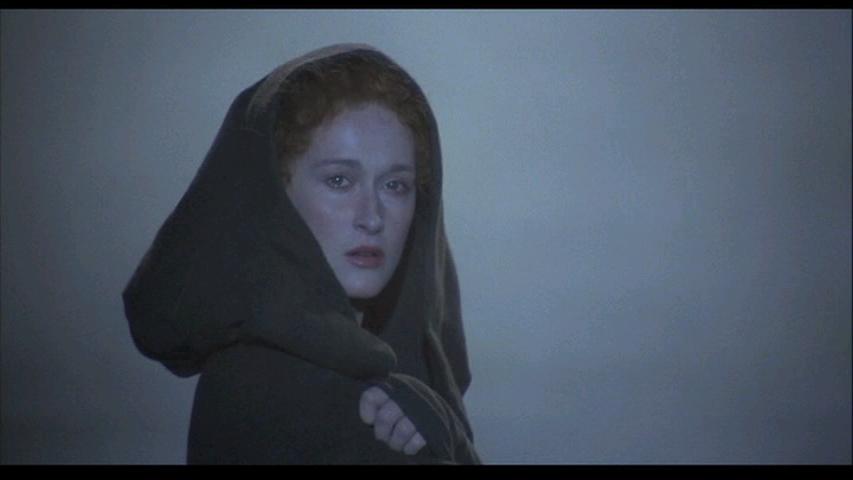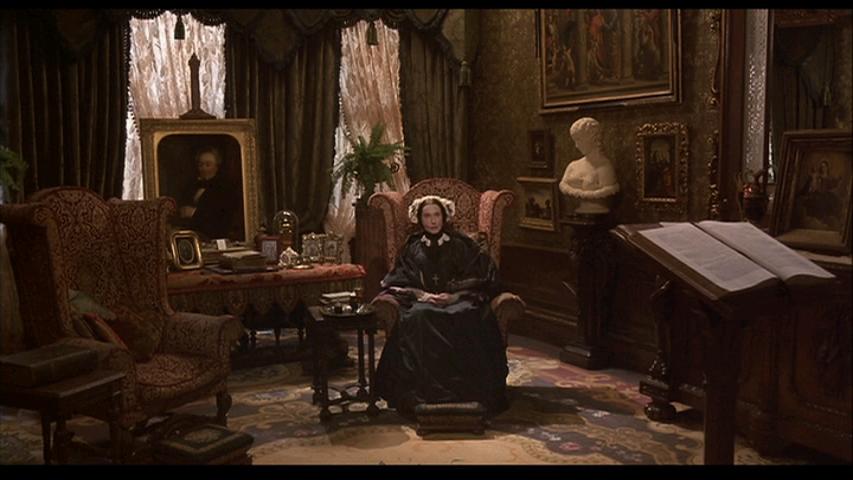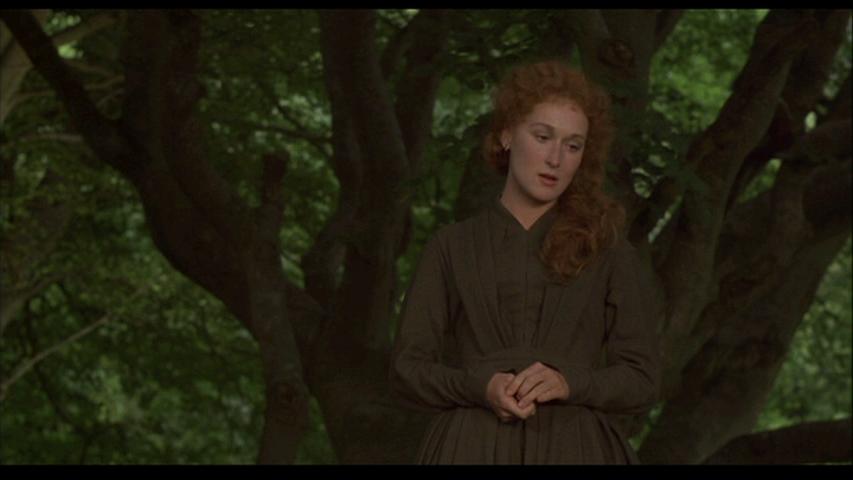|

Synopsis:
In a film set in 19th century England, a biologist (Jeremy Irons) engaged to an upstanding young woman (Lynsey Baxter) falls in love with a mysterious “fallen woman” (Meryl Streep). Meanwhile, the actors (Jeremy Irons and Meryl Streep) playing the leads carry on an affair during the film’s shooting.
|
|
Genres, Themes, Actors, and Directors:
- Actors and Actresses
- Historical Drama
- Karel Reisz Films
- Meryl Streep Films
- Morality Police
- Obsessive Love
Review:
Meryl Streep is nothing short of extraordinary in Karel Reisz’s film version of John Fowles’ The French Lieutenant’s Woman. As both the titular heroine and the modern-day actress (Sarah) playing her, Streep astonishes us with her ability to completely immerse herself in dual roles. Yet it’s Anna — the “French lieutenant’s woman” — who ultimately captures our interest most keenly; she’s far more complex — and intriguing — than one would have imagined. Jeremy Irons, with his perennially concerned expression, is appropriately cast as Anna’s forlorn suitor, and the supporting cast members are all effective as well — but it’s Streep we’re really watching and waiting for.
Playwright Harold Pinter wrote the film’s screenplay, adding the parallel love story set in modern times in an attempt to provide a latter-day commentary. While it’s ultimately unnecessary, it never detracts from the power of the primary story, and remains a clever narrative device. Yet it’s the historical drama which holds the most interest, as we anxiously await the outcome of Irons’ doomed attraction. Fortunately, we’re rewarded for our patience: the plot takes unexpected twists and turns, and, like any good romantic mystery, makes us question what’s come before.
Redeeming Qualities and Moments:
- Meryl Streep’s wonderful performance(s)

- Jeremy Irons as the fatally love-struck Charles

- Beautifully evoked period detail

- Effective use of natural settings to convey the turmoil of Charles and Sara’s burgeoning romance

Must See?
Yes, for Streep’s standout performance
Categories
- Noteworthy Performance(s)
- Oscar Winner or Nominee
Links:
|





One thought on “French Lieutenant’s Woman, The (1981)”
Ultimately not a must.
There’s a lot of talent in this production team and the product is handsomely mounted. Director Karel Reisz certainly proves himself competent. Still, the overwhelming feeling is too ponderous to call it a must.
Pinter’s device of the “parallel love story” is, I think, more than “latter-day commentary”: coming from the theater as he did, I’m sure the urge was strong to veer from Fowles’ story (was there simultaneously an urge to not trust it?) in order to comment directly on actors – who would most likely be the strongest defenders of this film. Anyone who has spent time in the theater knows better than anyone else the dichotomy of who you are vs. who you are playing. (I myself could relate behind-the-scenes stories that echo here.) Streep (who is indeed – duh! – marvelous) is, I have to say, much more compelling as Sarah – the cold careerist who is slightly appalled that her co-star is as lovesick as the character he’s playing, but realizes she ‘has to’ put up something of a front because…well, as Pinter writes it, anyway…that’s what the average actress does. It’s a bitter statement. [In this vein, my fave scene comes when Streep has a talk with Irons’ wife at a party. Particularly potent.]
The first hour of the film is something of a struggle. In the second half, momentum does build but, for me, the drama – such as it is – remains somewhat inert.